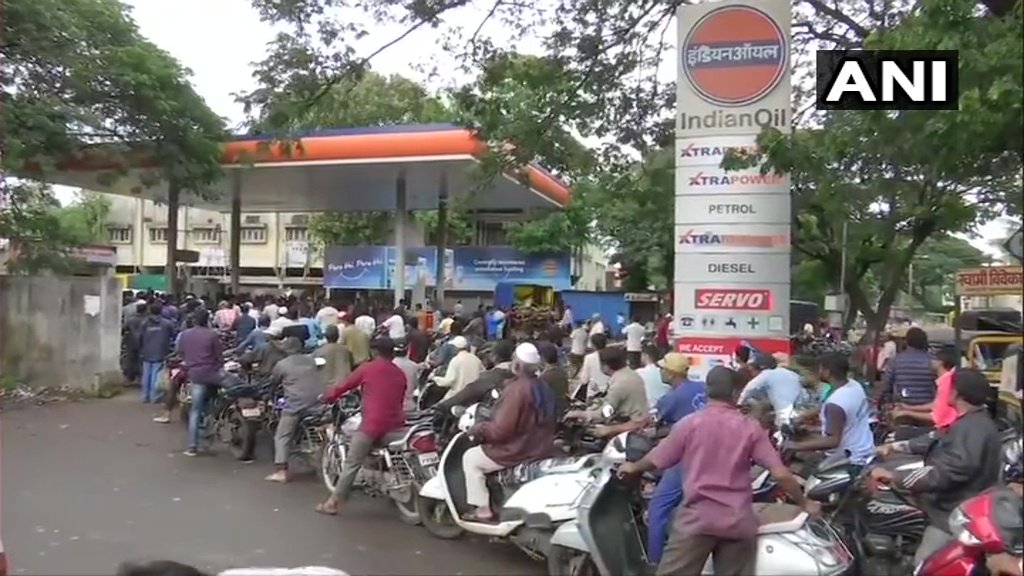No PUC, No petrol for Delhiites: A Detailed Analysis

Until July 2022, the Delhi Transport Department reported that over 17 lakh vehicles (13 lakh two-wheelers and three lakh cars) raced on the road without valid PUC.
On September 29, a meeting focusing on modalities and implementation plans stated that from October 25, holders of vehicles in Delhi would not be allowed to fill up petrol at gas stations if they did not have a valid pollution control certificate.

The ruling made against the petrol decision
According to Environment Minister Gopal Rai, one of the contributing parameters behind the growing pollution in Delhi is vehicular emissions. As the scenario demands immediate attention and action, it has been decided that after October 25, petrol and diesel will not be available at petrol stations unless the vehicle has a valid PUC certificate.
If the purchaser of the vehicle is spotted driving without a valid PUC certificate, the corresponding individual may face up to six months in prison or a fine of up to ₹10,000, or both, under the Motor Vehicles Act. According to the minister, all government entities, as well as the general public, are expected to have their vehicles’ PUC documentation in order.
The probable concerns
According to Rai, several gas pump operators are concerned that this may result in long queues of automobiles awaiting refueling at petrol stations.

The air quality is on the verge of deterioration.
The current scenario indicates that the air quality is approaching the ‘poor’ category, with the highest PM levels over the last 30 days. The concentration of particulate matter (PM) 2.5 is at its highest in almost 30 days, as per the statistics from Central Pollution Control Board (CPCB).
Statistics from air quality monitoring stations
Anand Vihar air quality monitoring station reported “severe” air quality in the latter week of September, while five other stations recorded “bad” air quality, including ITO and Jahangirpuri, on the first of this month.
The concept of Green War Room
Meanwhile, ahead of the expected increase in air pollution levels over the winter, the Delhi Secretariat has opened a 24-hour green war room on October 3. This war room will oversee the implementation of the Graded Response Action Plan (GRAP) and the winter action plan, which is a series of emergency measures to minimize air pollution that is in place all year.
According to Rai, the ‘Green War Room’ is being used to monitor actions being taken this winter to reduce air pollution marks, as well as monitoring the AQI and incidents of stubble burning. It will operate around the clock and will also keep an eye on data and complaints received through the Green Delhi App, where the citizens may record instances of activities resulting in air pollution. To date, a maximum of 54,156 complaints have been submitted using the Green Delhi app to date, which is supposed to handle by the Municipal Corporation of Delhi.

To keep the AQI under control, officials will keep an eye on air pollution levels from the war room and work with other departments. A team of experts, scientists, and engineers will manage the Green War Room. Despite a growing population, the Delhi government’s successful efforts to reduce pollution over the past ten years have resulted in a 40% decrease in PM 10 levels and a 31% decrease in PM 2.5 levels.
The war room was in operation last year as well. B.M.S. Reddy, an environmental scientist with the Delhi Pollution Control Committee (DPCC), has been charged with the responsibilities of the war room’s manager. A 12-member team led by the DPCC officer will run the war room.
Parallel measures that are considered to be effective
The Delhi government has launched an anti-dust campaign, with over 500 teams conducting surprise inspections at construction sites on October 6.
According to the regulations, building sites larger than 5,000 square meters must have one anti-smog cannon, those larger than 10,000 square meters must have two, and those larger than 15,000 square meters must have three. Similarly, locations larger than 20,000 square meters will are asked to use four anti-smog cannons to minimize the reasons causing dust pollution.
“The anti-dust campaign will take strong action against businesses that violate these restrictions on construction sites,” Mr. Rai warned.

Why are these emergency steps necessary?
Every winter, air pollution in the national capital and surrounding areas rises owing to a variety of factors such as sluggish wind, petrol emissions from motor cars, automobile emissions, pollution from stubble burning, and the bursting of firecrackers during festive seasons, among others.
The ultimate strategy
Let’s see if these efforts using petrol and fuel as weapons will improve the air quality in the national capital or if Delhiites will have to torture their lungs again in winter!
Now that we are aware of the what, why, and how of the situation, let’s talk about the attribute that makes the entire lawsuit stand out.
What is particulate matter (PM)?
It is a major air pollutant with small inhalable particles that may enter the lungs and even the bloodstream and cause disorders.
What is PUC Certificate?
The PUC (Pollution Under Control) certificate is asked for by the government of India under the Central Motor Vehicles Rule 1989. As a result, this document, like a registration certificate, driving license, and motor insurance policy, is now a mandate for all Indian drivers to possess.
How can you receive a PUC certificate for your bike or automobile?
The required certificate can be received in both offline and online modes.
Offline: –
- First, take the vehicle to your local emission testing center or licensed auto emission testing centers.
- Get your vehicle’s exhaust pipe tested.
- Pay, and you will receive the PUC certificate.
Online: –
- Go to www.parivahan.gov.in, the official website of the Government of India’s Ministry of Transport and Highways.
- Go to the “Parivahan” option and enter the last 5 digits of your vehicle’s Chassis number and the registration number.
- Choose “PUC Details.”
- Click the “Print” button “and take a paper copy of the PUC. You can also save it in the form of a PDF document and print it later.
edited and proofread by nikita sharma




